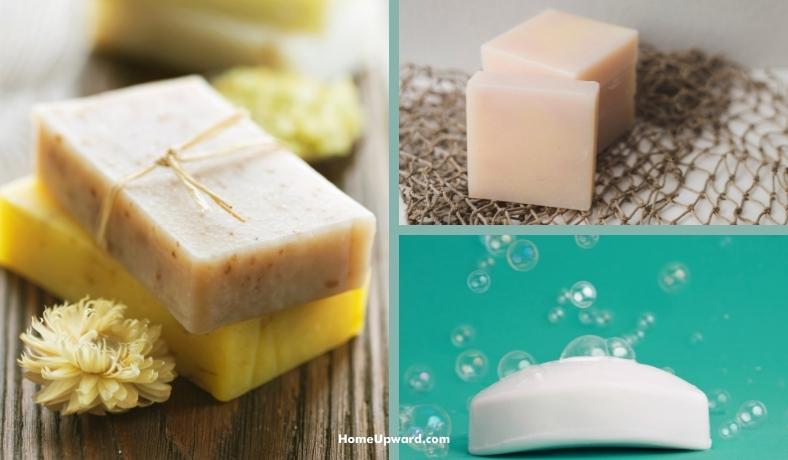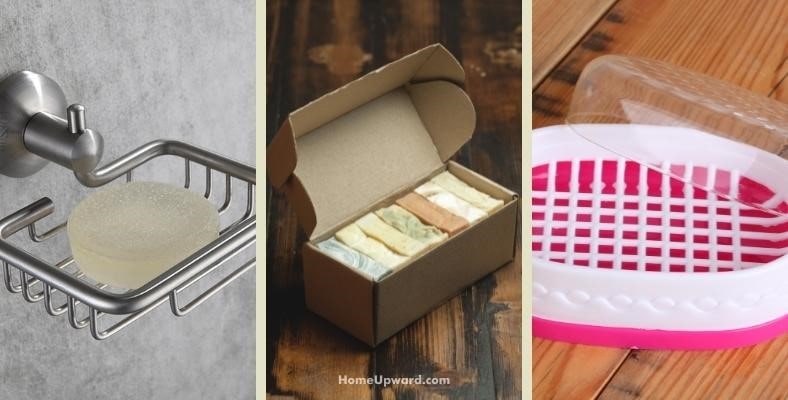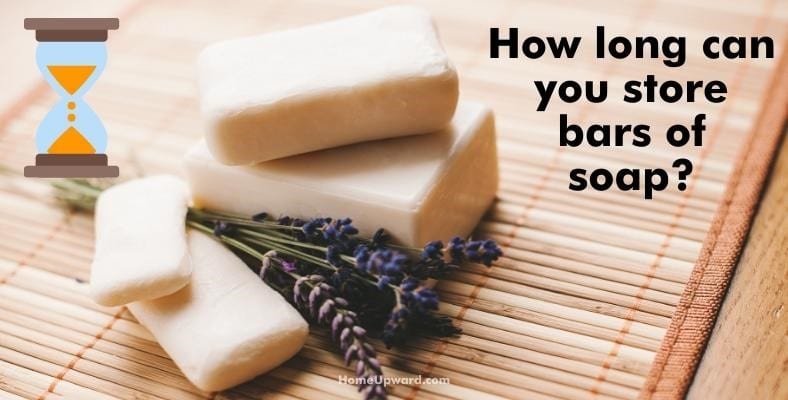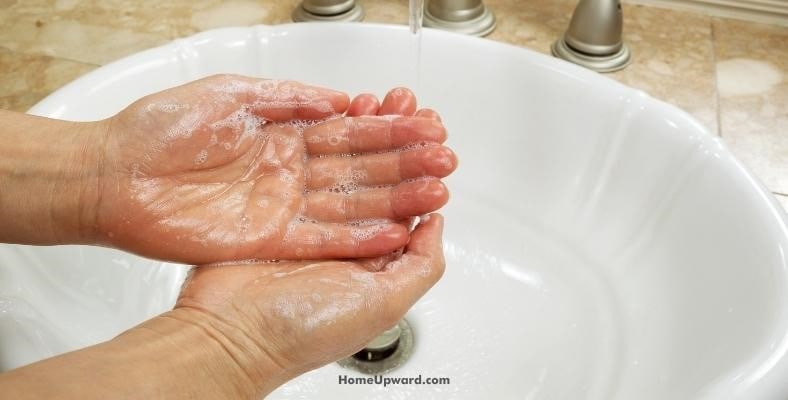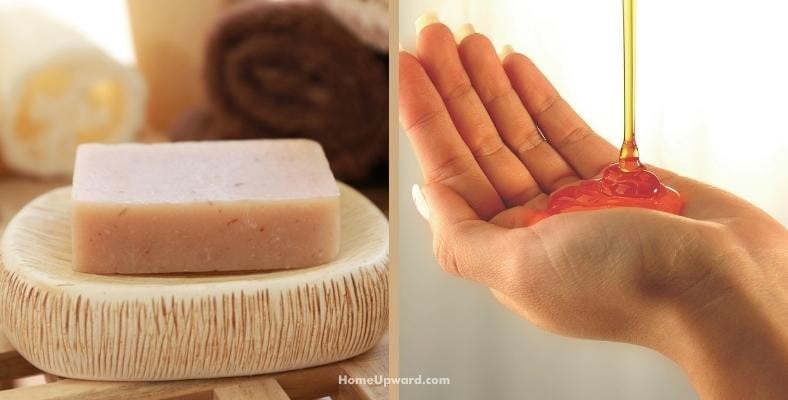Contents
How to Store Bar Soap Long Term
Whether you made a massive batch of bar soap at home or snagged a great deal at the store and loaded up your cart, knowing how to store bar soap long term is crucial. A few ways to store soap include putting it in the freezer or in a wooden or plastic container.
Storing Cold Process Soap and Hot Process Soap
You can use the same technique to store cold and hot process soap, ensuring they get plenty of air. To do so, I recommend placing your soap bars on a stainless steel wire rack. You can also put them in a cardboard or plastic box, leaving the lid open.
Dust is an understandable concern when storing bar soap for a long time. So, if you have some mesh cloth on hand, try laying it over your soap. Otherwise, you can poke holes in the plastic or cardboard box lid to allow for airflow while reducing dust.
Wooden crates are another excellent option for natural soap storage, given that air can flow through slits in the wood. Alternatively, you can wrap solid soap in plastic wrap and store it in the freezer.
How to Store Soap After Use
It’s no secret that whether you use a soap maker or buy bar soap from the store, it’s more environmentally friendly than liquid soap. So, to help this environmental approach, store your used soap in a well-ventilated area.
Make sure the stainless steel or plastic soap bar holder you use has holes or rack-like slots at the bottom. That’ll help it drain excess water, making the soap ready for your skin the next time you use it.
How Long Can You Store Bars of Soap?
When learning how to store bar soap long term, it’s essential to know their average lifespan. Store-bought bar soap typically has an expiration date of two to three years. On the other hand, handcrafted soap may have a shorter lifespan since it doesn’t contain preservatives.
Does Unopened Bar Soap Expire? How About Homemade Soap?
Like body wash, unopened bar soap expires. So, before you purchase a load of bar soap from a store, check the expiration date. If you don’t think you’ll be able to use all the soap bars before they expire, it’s best to put some of them back on the shelf.
Homemade soap also expires. If you notice that the soap molecules don’t lather up well when you wet the bar, or it doesn’t have the fragrance it used to, it’s likely time for it to make a trip to the trash.
Is It OK to Use Expired Soap?
If you’ve had a bar of soap hanging out in your soap dish for a while and know that it’s past its expiration date, here’s the good news—it won’t harm you to use it. However, it’s not going to be effective at cleaning germs and bacteria, either.
Whether you have glycerin soap or other forms of bar soap, they’ll remain quite dry when they’re expired after you wet them. They may even crumble in your hands.
When Should You Throw Out a Bar of Soap?
If you’re a soap saver, I understand the difficulties of throwing out your precious soap bars, especially if you made them. However, you should throw out both homemade and commercial soap when it no longer lathers.
That said if your bar of soap still suds up well but the pieces have become too small to wash effectively, try collecting them and pressing them together, forming a new makeshift soap bar.
How to Tell If Homemade Soap Has Gone Bad
Some of the best ways to tell that your homemade body or hand soap has gone bad include:
- Loss of smell
- Crumbly texture
- Orange spots
- Doesn’t lather
It may sound strange to think that orange spots could appear on your soap, but it’s common in older homemade varieties. The reason is that the essential oils in your soap start to spoil.
If you make homemade unscented bar soap, you’ll need to rely on the soap’s texture to determine if it’s gone bad. If your soap bar crumbles with light pressure or doesn’t lather up well like it used to, it’s time for it to head to the dump.
Can Bacteria Grow on Bar Soap?
Research shows that several bacteria can grow on bar soap, including E. coli and Staph. Epidermidis. That comes as little surprise, given that soap is often in a bathroom and around a lot of moisture. Luckily, the same study indicates that washing your hands with bacteria-laden soap will rid these germs from your hands.
Interestingly, the Center for Disease Control and Prevention says that soap without antibacterial properties works as effectively as those with it. So, you don’t have to infuse your handmade soap with antibacterial ingredients for it to function well.
Is Bar Soap Less Sanitary Than Liquid Soap?
Now that you know how to store bar soap long term, a soap bar’s cleaning power might be on your mind. Here’s the good news—soap bars are equally effective at combating dirt and germs as liquid soap.
If you choose the bar soap making route, know that the ingredients make soap effective, not its form. In fact, bar soap might be even healthier for you than liquid soap since it almost always has fewer ingredients, with natural essential oils replacing the sometimes harsh chemicals of liquid soap.

